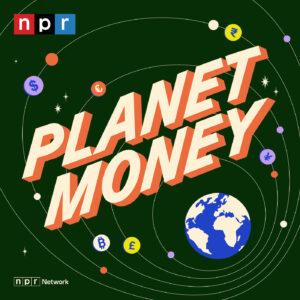Intro
In this episode of “The Bugle,” the podcast celebrates its 16th birthday while discussing a range of topics, including social media, online disinformation, Indigenous recognition referendum in Australia, challenges to fundamental rights, the English legal system, and the intersection of politics and cricket. Joining the show are Anuva Vap from Kolkata, India, and Sammy J from Melbourne, Australia.
Main Takeaways
Celebrating The Bugle’s 16th Birthday
- The Bugle celebrates its 16th birthday, marking a milestone for this long-running podcast.
- Consideration of a name change for The Bugle, including possibilities like “Barack Obama Interview Show” and “Zaltor the Merciless.”
Social Media and Online Disinformation
- Social media allows individuals to choose their own reality based on their beliefs and preferences.
- Misinformation and fake news are prevalent on social media platforms.
- Authorities are cracking down on social media companies for their lack of responsibility in curbing misinformation.
- The deluge of online disinformation is a serious problem that needs to be addressed.
- Conspiratualism and bullholism are emerging phenomena combining conspiratorial tendencies, anti-scientific mysticism, and belief in false claims.
Indigenous Recognition Referendum in Australia
- Australia rejected the Indigenous recognition referendum by a margin of 60% to 40%.
- The Yes campaign focused on respecting Indigenous legacy, while the No campaign expressed racism.
- Political figures like Tony Abbott, known for his racist views, were happy with the outcome.
- Non-white Australians were not surprised by the result.
- Arguments against the referendum included concerns about creating inequalities or its potential ineffectiveness.
Challenges to Fundamental Rights and the Legal System
- The Indian Supreme Court rejected a challenge to the fundamental right to belief.
- The challenge was based on Article 32 of the Indian constitution, which guarantees the right to belief.
- The Bugle’s Indian Legal System correspondent, Anuvaab, provided insights into the case and the Indian legal system.
- A man challenged the laws of motion, citing his experiences in Glasgow as evidence.
- The Supreme Court did not rule on the validity of the challenge but considered it a personal matter.
The Intersection of Politics and Cricket
- The Narendra Modi Stadium in Ahmedabad, India, was transformed into a propaganda tool for a cricket match between India and Pakistan.
- Politics has co-opted sports, particularly cricket, into a bizarre political orbit, preventing people from enjoying the entertainment that sports bring.
- Cricket will be back in the Olympics in 2028 after a 128-year gap, with hopes of expanding its presence in the tournament.
- Pakistani fans face emotional, psychological, and physical damage due to the political tensions surrounding the cricket matches between Pakistan and India.
Summary
The Bugle’s 16th Birthday and Social Media Disinformation
The Bugle celebrates its 16th birthday, contemplating a potential name change while discussing the challenges posed by social media. Social media platforms allow individuals to curate their reality, but this has led to the proliferation of misinformation and fake news. Authorities are now taking action against social media companies for their lack of responsibility in addressing this issue.
Australia’s Indigenous Recognition Referendum and Challenges to Fundamental Rights
Australia’s rejection of the Indigenous recognition referendum highlights ongoing racial tensions. The Yes campaign focused on respecting Indigenous legacy, while the No campaign revealed underlying racism. The Indian Supreme Court’s dismissal of a challenge to the fundamental right to belief raises questions about the boundaries of personal beliefs and the role of the legal system in defining them.
Politics and Cricket: The Narendra Modi Stadium and Cricket’s Return to the Olympics
The intersection of politics and cricket is evident in the transformation of the Narendra Modi Stadium into a propaganda tool for a match between India and Pakistan. Cricket’s return to the Olympics after a long hiatus presents an opportunity for expansion, but political tensions continue to overshadow the sport, causing emotional distress for Pakistani fans. The hope is that cricket can be enjoyed purely for its entertainment value, free from political interference.
Conclusion
“The Bugle” podcast’s 16th birthday episode covers a wide range of topics, from social media disinformation to challenges to fundamental rights and the politicization of cricket. It highlights the need for responsible online platforms, the importance of respecting Indigenous communities, and the desire for sports to be enjoyed without political interference. As “The Bugle” continues to entertain and inform, it remains a valuable source of commentary on current events and societal issues.
